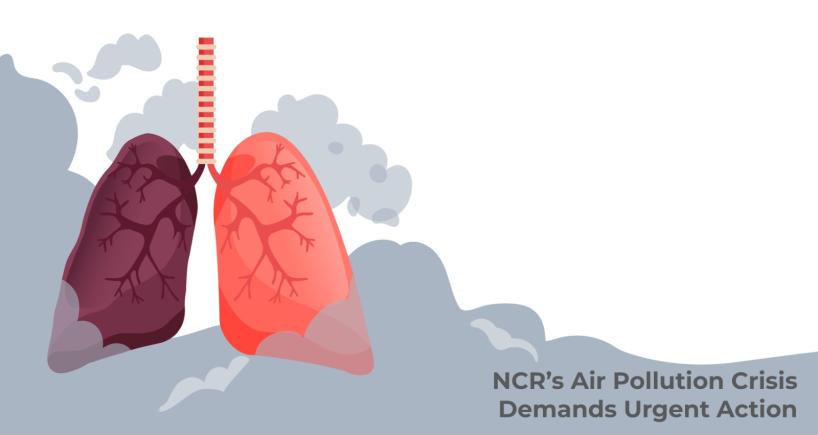
NCR’s Air Pollution Crisis Demands Urgent Action
The National Capital Region (NCR) of India is grappling with an alarming rise in air pollution, posing severe risks to public health, the environment, and the economy. As the winter season sets in, the air quality in NCR routinely plunges into hazardous levels, dominated by a thick blanket of smog. This persistent problem requires urgent attention and action from both policymakers and citizens.
The causes of air pollution in NCR are multifaceted. Vehicular emissions remain one of the largest contributors, with millions of vehicles plying the region’s roads daily. The unchecked use of older, diesel-powered vehicles exacerbates the issue. Industrial emissions, particularly from brick kilns and factories in neighboring areas, further degrade air quality. Construction activities, while vital for urban growth, release a significant amount of dust and particulate matter into the atmosphere.
A major seasonal contributor is the burning of crop stubble in Punjab, Haryana, and Uttar Pradesh. Despite government bans and the promotion of alternative methods, stubble burning remains a widespread practice, particularly during the pre-winter period. The combination of this smoke with stagnant weather conditions in winter leads to the formation of smog, making breathing difficult for NCR residents.
The impact of this pollution is staggering. Studies show that prolonged exposure to poor air quality increases the risk of respiratory illnesses, cardiovascular diseases, and even neurological issues. Children and the elderly are particularly vulnerable, as their immune systems are either developing or weakened. The economic cost is equally significant, with rising healthcare expenses and loss of productivity.
Efforts to combat this crisis are underway but remain insufficient. The Delhi government has implemented measures like the Graded Response Action Plan (GRAP), restrictions on construction, and odd-even traffic schemes. However, the effectiveness of these measures is often limited by poor enforcement and lack of coordination across states. Long-term solutions like promoting public transport, switching to cleaner fuels, and adopting sustainable agricultural practices are crucial.
Ultimately, addressing air pollution in NCR requires a collective effort. Governments must enforce stricter regulations, industries need to adopt cleaner technologies, and citizens must make conscious choices to reduce their carbon footprints. Without decisive action, the rising pollution levels in NCR will continue to take a toll on public health and the quality of life in the region.
Categories
Clear allMeet the doctor

- Pulmonology | Pulmonology
-
15 Years
-
700



















